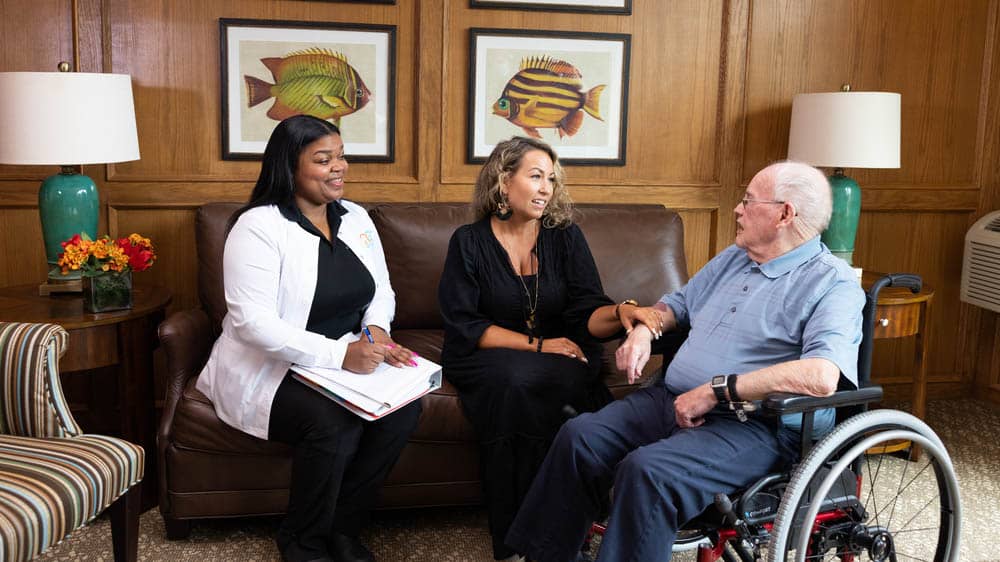

Loneliness and Isolation in the Elderly: Prevention Tips
The holidays are over, and family and friends have scattered. Darkness comes early, and temperatures have fallen. Loneliness often sets in after the holidays, and for the elderly who are isolated, the sense of emptiness or isolation can lead to depression. According to the National Institutes of Health, nearly one-fourth of Americans age 65 and older are isolated, with 43% of adults age 60 and older reporting loneliness.
The Centers for Disease Control and Prevention suggests that social isolation and loneliness can lead to a myriad of health-related problems, including heart disease and stroke, Type 2 diabetes, depression and anxiety, addiction, dementia and others. There are many ways you can help your aging loved one manage the effects of loneliness and isolation.
Social Connections
- Encourage regular communication with family and friends through phone calls, video chats or in-person visits.
- Help seniors join social groups or clubs that align with their interests, providing opportunities to make new friends.
Hobbies and Activities
- Encourage participation in activities they enjoy, such as reading, gardening, painting, or playing musical instruments.
- Explore local senior centers or community centers that offer a variety of activities.
Volunteer Opportunities
- Suggest volunteering for a cause they are passionate about. Volunteering not only provides a sense of purpose but also facilitates social interactions.
Outdoor Activities
- Spending time outdoors can have positive effects on mood. Encourage walks, picnics or other outdoor activities.
Mental Health
- Ensure that seniors have access to mental health support if needed. This may involve professional counseling, support groups, or therapy sessions.
Routine
- Establishing a daily routine can provide structure and prevent feelings of emptiness. This could include set times for meals, activities and social interactions.
Pets
- If possible and appropriate, consider offering a pet as a companion. Pets can provide unconditional love and companionship.
Community Resources
- Research and connect with local community resources that offer support for seniors, such as senior centers, meal programs, or transportation services.
Lifelong Learning
- Suggest enrolling in classes or workshops to learn new skills or explore new interests. Lifelong learning can be a fulfilling and social experience.
Healthy Habits
- Encourage regular physical activity, a balanced diet and proper sleep, as these factors can positively impact mood and overall well-being. Visit the National Council on Aging for helpful suggestions for diet and nutrition, exercise and fitness, sleeping habits and more.
Seek Further Professional Recommendations
It’s important to pay special attention to the emotional well-being of your elderly loved one. Be sure to approach their feelings of loneliness with empathy and understanding. Continue regular communication, practice active listening and involve them in decision making. If loneliness continues, consider seeking advice from health care professionals or social workers specializing in senior care.
How Right at Home Can Help
Right at Home’s professionally trained caregivers provide services that promote healthy living and well-being through social interaction. Caregivers provide wellness support, meal preparation, light housekeeping and other services, including mobility assistance, hygiene services and transportation, to help seniors maintain social interactions. Use our location finder to contact the office nearest you to find out more.







